Coconut charcoal briquettes have become increasingly popular as an alternative energy source among communities due to its more environmentally friendly nature compared to wood charcoal. These coconut charcoal briquettes have been utilized as a fuel solution for renewable energy for cooking and heating. However, not only that, the other uses of coconut charcoal can also be utilized as an alternative for medicine, toxin removal, anti-venom for animals, as well as additional body care products. The multitude of uses and benefits provided by coconut charcoal necessitates suppliers to ensure that the fuel is available in the market.
The increasing market demand due to the popularity of coconut charcoal briquettes as an alternative fuel indicates a growing awareness of the importance of environmentally friendly energy. This serves as an effort in maintaining the environment cleaner and reducing environmental pollution from coconut shell waste. The production process of coconut charcoal briquettes using coconut shell waste as raw material can certainly help in maintaining the environment cleaner from environmental pollution. Therefore, aside from being useful as an environmentally friendly alternative fuel, coconut charcoal briquettes also serve to preserve the environment.
Suppliers of coconut charcoal briquette play a crucial role in the production process of this alternative fuel. This is because they must ensure that market demand continues to be met, thus the supply in the market must remain available. The following will be discussed comprehensively regarding the roles and challenges of Suppliers of Coconut Charcoal Briquettes.
Why is Coconut Charcoal Briquette Becoming More Popular?
Coconut charcoal briquette is an alternative fuel from renewable energy that can replace the use of wood charcoal and abundant fossil fuels. Coconut charcoal is also known for being environmentally friendly as its production process utilizes coconut waste to create high-value energy and helps reduce environmental pollution. These briquettes also have high energy density, thus capable of producing longer and more stable heat compared to regular wood charcoal.
Furthermore, coconut charcoal briquettes are becoming increasingly popular due to their ability to produce low emissions. The use of coconut charcoal briquettes can result in lower carbon emissions, making it safer and cleaner for the environment and human health. This is also because coconut charcoal briquettes do not produce pungent odors when burned and do not impart a different smell to the food being cooked, thus users of coconut charcoal will be more comfortable when using it for cooking or heating.
Roles of Suppliers of Coconut Charcoal Briquettes
Suppliers of coconut charcoal briquettes play a crucial role in global efforts to reduce environmental pollution through coconut shell waste. Before being turned into charcoal, coconut shell waste can pollute water and air due to its non-biodegradable nature. By utilizing it as charcoal, the waste that previously became garbage now has high utility and value.
The suppliers of coconut charcoal briquettes have the responsibility to ensure that product availability maintains high quality that meets market demand standards. The following are the roles and responsibilities of suppliers:
Raw Material Supply Availability
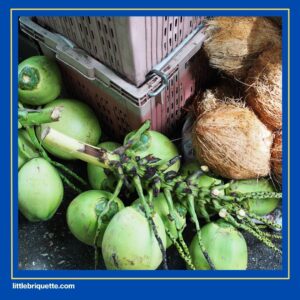
In a production process, the primary thing that should not be overlooked is an abundant supply of raw materials. Suppliers must ensure that high-quality coconut shells are available as the main raw material. This will involve collaboration between coconut farmers and coconut processing industries.
Suppliers must also ensure that the coconut shells to be processed into charcoal briquettes are of the best quality. The reason is that with the best quality coconut shells, high-quality charcoal will also be produced. However, it should also be noted that the production process must be carried out carefully. Careless production processes can negatively impact the quality of coconut charcoal. Coconut charcoal may be contaminated with heavy metals or other chemicals if the production process is mishandled.
Coconut Charcoal Briquette Production Process
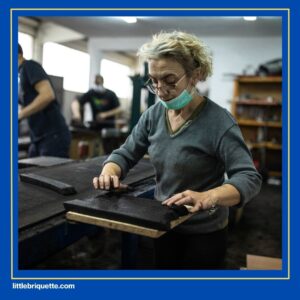
This careful production process of coconut charcoal briquettes involves carbonization, grinding, mixing, molding, and drying. Suppliers of Coconut Charcoal Briquettes must have modern and efficient production facilities to produce briquettes of the best quality. Careless production processes will result in decreased quality of coconut charcoal briquettes. Therefore, suppliers must ensure that each process is carried out properly. From raw material selection to packaging, it must be done carefully.
Quality Control

An important role that must be fulfilled by suppliers is quality control. With the high demand from the market and to ensure customer satisfaction, suppliers must conduct strict quality control at every stage of the production process. At this stage, suppliers must conduct checks starting from density tests, moisture content, and ash content contained in both raw materials and the resulting coconut charcoal briquettes.
Distribution and Logistics
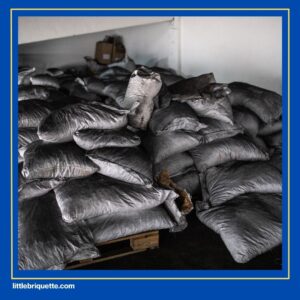
Suppliers of Coconut Charcoal Briquette have the responsibility to manage the product distribution process to various regions. This involves efficient logistics management so that coconut charcoal briquettes can be received by consumers in good condition and on time. When the production process has been carried out carefully and is capable of providing the best quality, if the distribution and logistics processes are not done well and carefully, it will also decrease the quality of coconut charcoal briquettes. Therefore, this becomes a role and responsibility that must be carried out by suppliers.
Challenges Faced
Coconut charcoal briquettes, which have more advantages compared to wood charcoal, also face various challenges for suppliers. The following are some challenges that must be faced by suppliers:
Raw Material Price Fluctuations
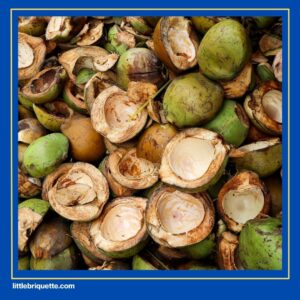
Although Indonesia is a tropical country with abundant coconut production, the price of coconut shells can still fluctuate depending on the season and availability. Fluctuations in the price of raw materials can affect production costs. If production costs increase, suppliers must also raise the price of coconut charcoal briquettes in the market. However, raising prices in the market can also impact consumers.
Environmental Regulation Compliance
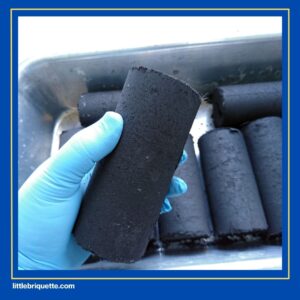
Another challenge faced by suppliers is compliance with environmental regulations. Suppliers must comply with various environmental regulations and quality standards enforced by the government and international bodies. This requires special attention from suppliers because the quality of coconut charcoal briquettes will affect the environment and human health.
Consumer Education on Environmentally Friendly Energy

Despite its increasing popularity, many people still do not fully understand the benefits of using coconut charcoal briquettes as a substitute for fossil fuels or traditional wood charcoal. Therefore, suppliers need to provide education and promotion to increase public awareness. Many people still use wood charcoal, which can emit high levels of gas emissions. This poses a challenge for suppliers to change public perceptions and increase market demand.
High-Quality Suppliers of Coconut Charcoal Briquette
Looking for high-quality coconut charcoal briquettes that are not contaminated with harmful chemicals or heavy metals? Trust your purchase with Little Briquette, as it is trusted as a factory and supplier of coconut shell charcoal briquettes that use the best raw materials from their own Sumatran coconut plantations. Contact Little Briquette through this contact.

